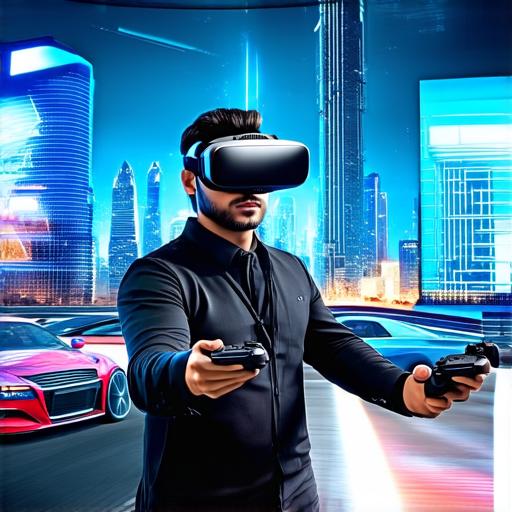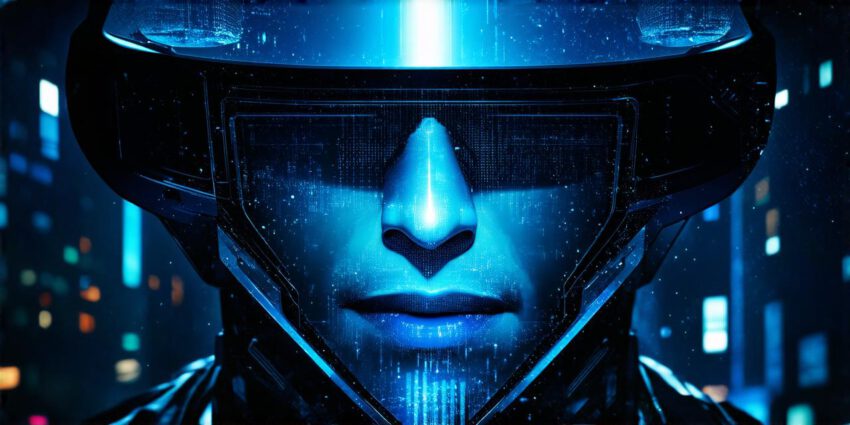Virtual reality (VR) technology has been rapidly evolving over the past decade, and it’s now used in a wide range of industries, including gaming, education, healthcare, and entertainment.
To become a successful virtual reality developer, you need to have a combination of technical and creative skills. Here are some of the key skills and qualifications you will need:
1. Programming skills:
VR development involves programming in languages such as C++, Unity, or Unreal Engine. You should have a strong background in computer science and be comfortable with coding concepts like data structures, algorithms, and object-oriented programming. Additionally, you should be familiar with the specific programming language used for your chosen VR platform.
2. 3D modeling and animation:
Creating immersive VR experiences requires 3D modeling and animation skills. You should be familiar with tools such as Maya, Blender, or 3ds Max to create 3D models and animations that are optimized for VR. You should also have a good understanding of the principles of motion capture and how it can be used to animate virtual characters in a realistic way.
3. Game design:
Virtual reality game development involves creating engaging and immersive gameplay experiences. You should have a strong background in game design principles and be able to conceptualize, prototype, and iterate on game ideas. Additionally, you should have experience with designing games specifically for VR platforms and understand how to optimize game performance for different devices.
4. User experience (UX) design:
Virtual reality experiences must be intuitive and user-friendly. You should have a strong background in UX design and be able to create wireframes, prototypes, and user flows that optimize the VR experience for users. Additionally, you should have experience with designing interfaces specifically for VR platforms and understand how to create an immersive and intuitive user experience in this unique environment.
5. VR hardware and software knowledge:
Virtual reality technology is constantly evolving, and it’s important to stay up-to-date with the latest hardware and software developments in the field. You should have a solid understanding of VR hardware such as Oculus Rift, HTC Vive, and PlayStation VR, as well as the software platforms used for VR development such as Unity and Unreal Engine.
Real-Life Examples
There are many successful virtual reality developers working in various industries, including gaming, education, healthcare, and entertainment. Here are a few examples of what they do:
1. Swordfish Studios:
Swordfish Studios is a VR game development company that specializes in creating immersive experiences for mobile gaming apps. Their flagship title, “Samurai Siege,” is a VR combat game that has been downloaded millions of times on the Oculus Store and Google Play Store. The game’s immersive 3D graphics and realistic physics simulation have made it a favorite among gamers looking for an engaging VR experience.
2. Tilt Brush:
Tilt Brush is a VR painting application developed by Google. It allows users to create 3D art in virtual reality using a motion-controlled wand as their brush. Tilt Brush has been a huge success, with millions of users downloading the app and creating unique works of art in virtual reality. The app’s intuitive interface and flexibility have made it a favorite among artists looking for new ways to express themselves creatively.
3. Anatomomy VR:
Anatomomy VR is an educational application that allows medical students to explore the human body in virtual reality. The app includes 3D models of organs and systems, as well as interactive animations that demonstrate how they function. Anatomomy VR has been used by medical schools around the world to enhance student learning and understanding of complex concepts. The app’s immersive environment has made it a valuable tool for medical education, allowing students to gain hands-on experience in a safe and controlled environment.
4. Oculus Experience:
Oculus Experience is a virtual reality platform developed by Facebook. It allows developers to create and publish VR experiences that can be accessed from a variety of devices, including the Oculus Quest, Rift, and Go. The platform has been used to launch a wide range of VR applications, from games and entertainment to education and healthcare. Oculus Experience’s easy-to-use interface and flexible publishing options have made it a popular choice for developers looking to create and distribute VR content.
Conclusion

Becoming a virtual reality developer requires a combination of technical and creative skills, as well as a deep understanding of the unique challenges and opportunities presented by this rapidly evolving technology. By developing the right skills and staying up-to-date with the latest developments in the field, you can create immersive and engaging VR experiences that have the potential to revolutionize the way we interact with digital content.

